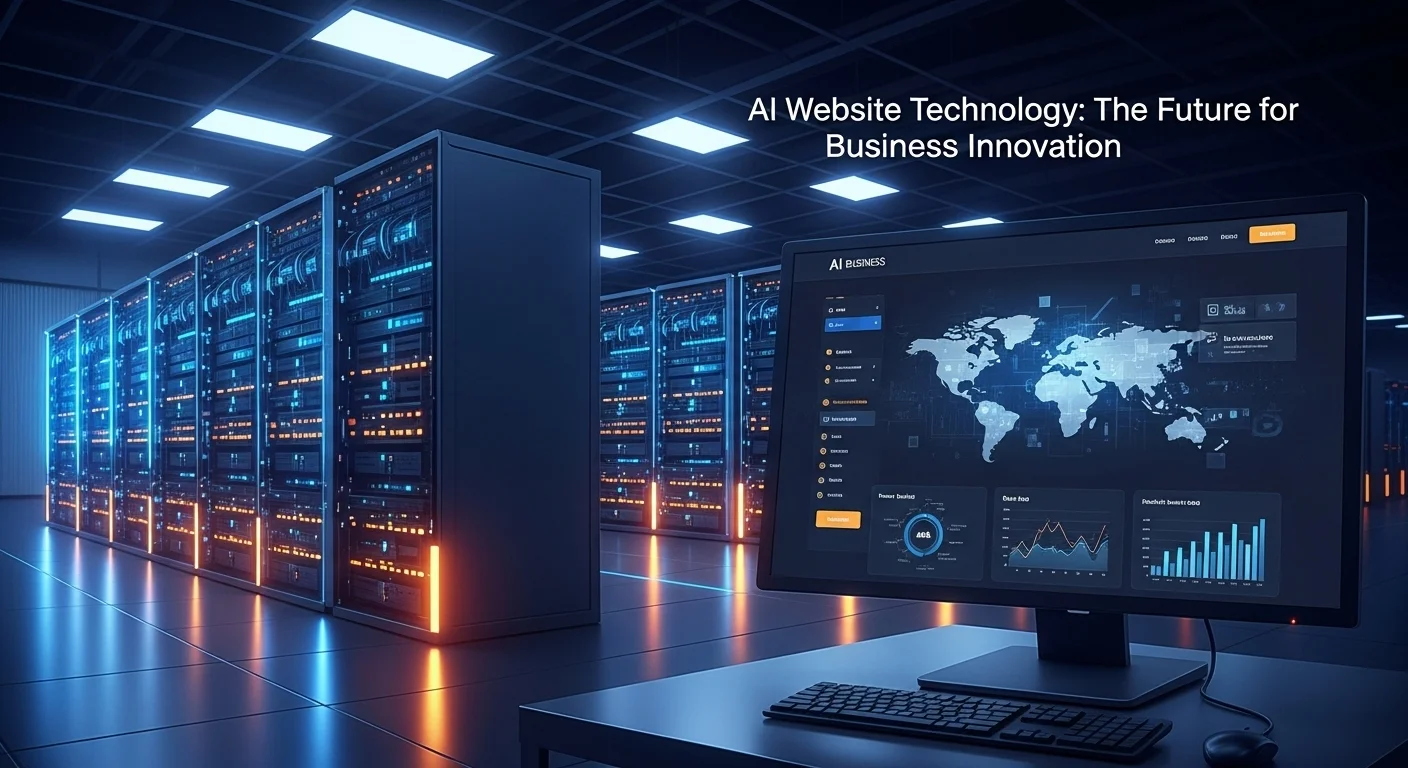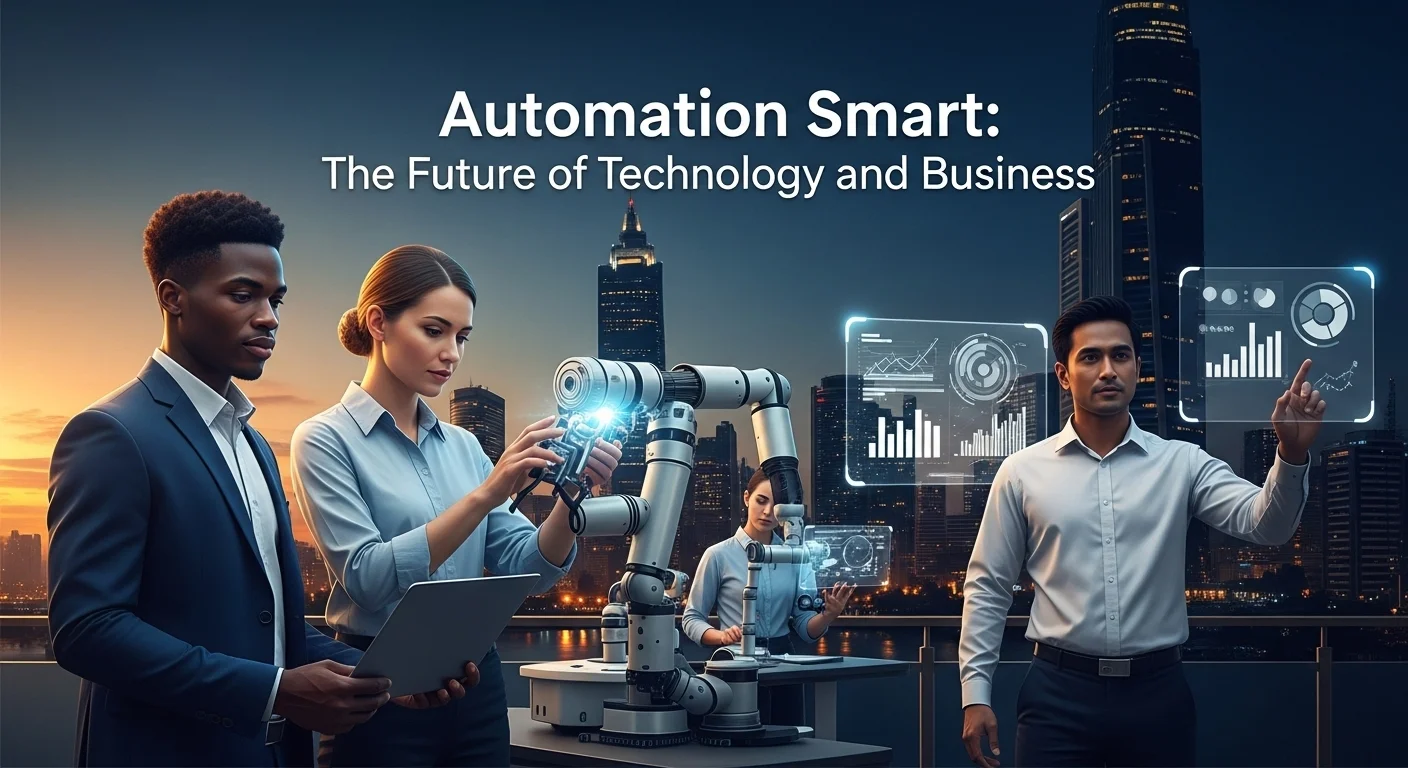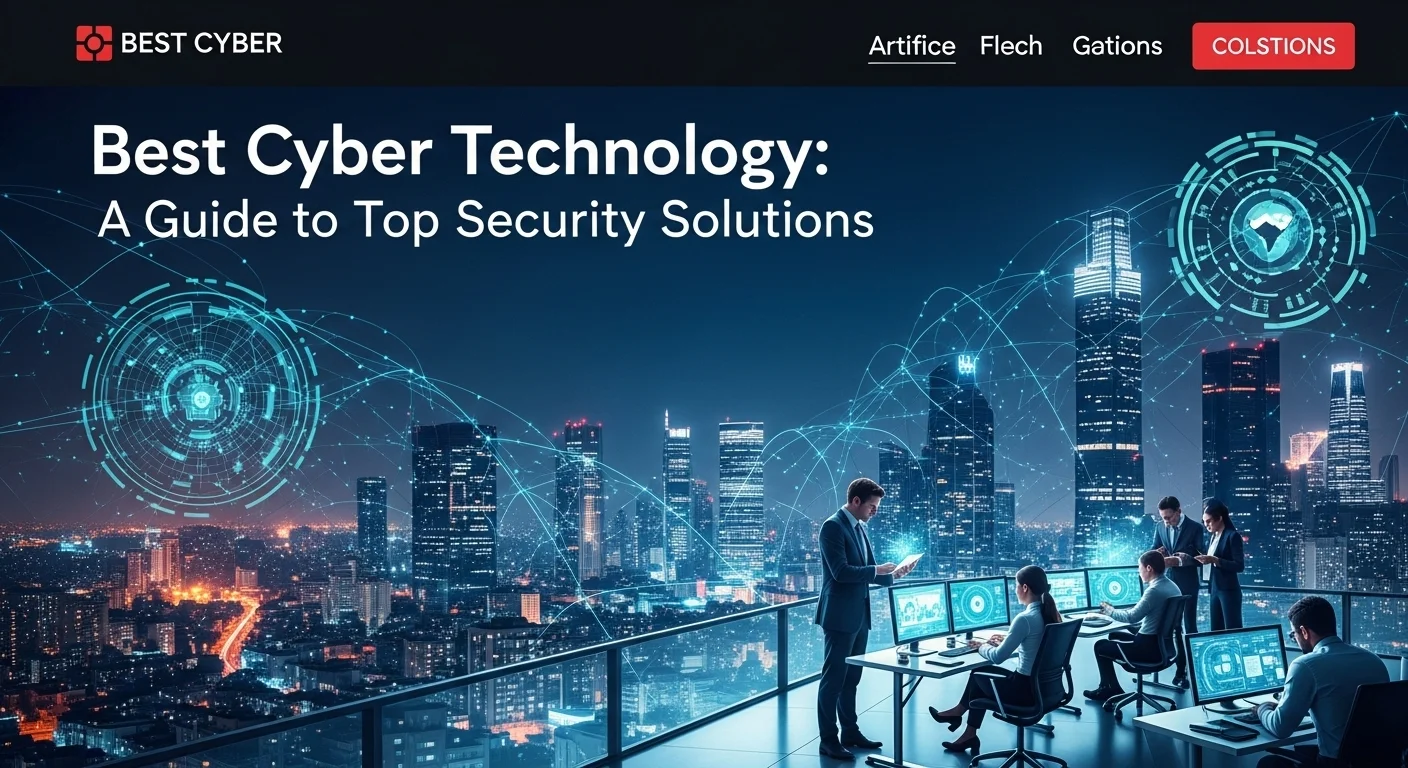What is an AI Website? A Practical Guide for Your Business

Executive Summary
The first time I saw Artificial Intelligence build a complete, professional website in under five minutes, I knew the game had changed forever. We're no longer just talking about a new tech trend; we're witnessing a fundamental shift in how anyone, from a solo entrepreneur to a large company, can establish a powerful online presence. An AI-powered website uses smart technology to handle the heavy lifting of design, content creation, and even personalization. For businesses, this means launching faster, cutting costs, and delivering experiences that truly connect with customers. For tech lovers, it's a fascinating look at the future of the web. In this article, I'll break down everything you need to know about AI website technology, drawing from my own experience helping businesses navigate this digital revolution. This is an essential guide for anyone serious about succeeding online today.
Table of Contents
Table of Contents
What is an AI Website and Why Does It Matter?
The digital world never sits still, but the rise of Artificial Intelligence is causing a bigger stir than anything I've seen in years. At the heart of this excitement is the 'AI website'—a term that’s become a game-changer for businesses. So, what is it? Put simply, an AI website is a site that is built, managed, or significantly improved using artificial intelligence. This isn't just about picking a template. It’s about using smart algorithms to automate design, write initial content, create personalized experiences for visitors, and even optimize itself for better performance over time. The importance of this is huge because it makes professional web development accessible to everyone, speeding up how quickly a business can get online and unlocking a new level of connection with users that was once unimaginable.
At its core, this technology uses a few key AI disciplines. Machine Learning (ML) is the brain that analyzes how users behave on a site, spotting patterns to make smart adjustments to the layout or content. Natural Language Processing (NLP) is what makes AI chatbots and content generators sound so human, allowing for natural conversations and automated writing. Then you have Generative AI, which can create stunning, unique visuals like logos and images, ensuring that even an automated design feels original and true to your brand. This is a massive leap from traditional web development, which I’ve spent countless hours on, involving manual coding, design revisions, and testing. A traditional site can take weeks or months. In stark contrast, an AI website builder can deliver a beautiful, functional site in minutes by simply asking you a few questions about your business and goals.
How AI is Changing the Game for Businesses
This shift is a lifeline for small businesses and entrepreneurs. I’ve spoken with so many owners who felt priced out of a professional website. Now, the search for a great business website is no longer about finding a cheap template; it's about accessing intelligent tools that can give them a competitive edge. An AI-driven site can automate complex tasks like SEO, A/B testing different headlines, and personalizing content—tasks that used to require dedicated teams and a hefty budget. This frees up business owners to focus on what they do best: running their business. The benefits are crystal clear: you get to market faster, save money on development, and have a dynamic website that actually adapts to what your customers want.
For larger companies, the value is in scaling personalization. Imagine an e-commerce giant delivering a unique shopping experience to millions of customers at the same time, with product recommendations and content perfectly tailored to each person. That’s the power of AI. By analyzing user data, businesses can make smarter, data-driven decisions that lead to happier customers and more effective marketing. This technology can even improve accessibility by automatically adding descriptions to images or enabling voice navigation, making the web a more inclusive place for everyone.
The Tech Behind the Magic: From Design to Content
When you look closer, the technology is truly impressive. The design process, for example, is no longer just about a designer's gut feeling. Artificial Design Intelligence (ADI) systems have analyzed millions of successful websites to learn what layouts, colors, and fonts work best for certain industries. When you tell it you need a site for your coffee shop, it doesn't just grab a generic template. It pulls design principles from the best-performing cafe websites to create something visually appealing that is also designed to drive traffic and sales. This is a key feature to look for in the top AI platforms.
Content is another area being transformed. For any business, creating quality content is essential. AI tools can now generate first drafts for blog posts, product descriptions, marketing emails, and more. While I always tell my clients that a human touch is needed to polish the final text for brand voice and accuracy, this technology eliminates the 'blank page' problem and saves an incredible amount of time. And the interaction doesn't stop there. AI chatbots have become incredibly smart, using natural language to provide 24/7 support and answer complex questions. This seamless experience is what turns casual visitors into loyal customers.
In the end, the AI website is a pivotal moment in tech. It's where web development, data science, and user experience meet to create something smarter and more personal. For any business, adopting this technology is a strategic move. It’s not just a trend; it's the foundation for the next generation of the internet—a future where your website is an intelligent partner helping you succeed.

Your Complete Guide to AI Website Solutions for Business
Diving into the world of AI websites can feel like a lot, but I'm here to walk you through it. It's about understanding the tools available and having a smart strategy to make them work for your business. This guide will give you a clear roadmap to choosing the right platform and using it to build a powerful digital presence.
First, let's talk about the easiest way to get started: AI-powered website builders. I've tested many of them, and platforms like Wix ADI, Hostinger AI Website Builder, and Durable are leading the pack. They do the heavy lifting for you. You start by answering simple questions about your business, your audience, and what you like visually. The AI takes your answers and, in minutes, generates a surprisingly complete and customized website. Wix ADI, for example, will even search the web for information about your business to pull in relevant text and images. Hostinger's tool is incredibly fast, creating a site with text and even a logo almost instantly. When you're comparing these platforms, my advice is to look at the design quality, how relevant the AI-generated content is, how much you can customize it afterward, and what marketing tools are included.
For businesses with an existing website, the approach is different. Instead of starting from scratch, you can integrate specific AI tools to enhance what you already have. This is a path I often recommend to larger clients. Key technologies include:
- AI Personalization Engines: Think of tools like those used by Amazon or Netflix that recommend products or shows. You can integrate similar technology to show visitors personalized content and product suggestions based on their past actions. This is one of the most powerful ways to increase sales and engagement.
- Generative AI for Content: You can use APIs from models like GPT-4 to help you write blog posts, product descriptions, or social media updates at scale. I've seen teams cut their content creation time in half with this. Similarly, AI image generators like Midjourney can create stunning, unique visuals, so you don't have to rely on generic stock photos.
- NLP for Better Customer Interaction: Modern AI chatbots from platforms like Intercom are a world away from the clunky bots of the past. They can handle complex conversations, qualify sales leads, and even book meetings, providing amazing customer service 24/7.
- Predictive SEO and Analytics Tools: I'm a big fan of tools like SurferSEO. They use AI to analyze top-ranking pages and give you a clear, data-backed recipe for how to optimize your own content. It takes the guesswork out of SEO.
From a business standpoint, you need a clear plan. Start by asking: what's my main goal? Is it more online sales, better leads, or lower customer support costs? Your goal will determine which AI tools are right for you. If you need leads, a smart chatbot is a great investment. If you're in e-commerce, a personalization engine is a must.
Your data strategy is also crucial. A common saying in my field is 'garbage in, garbage out.' AI is only as smart as the data you feed it. Make sure you are collecting clean, relevant information about your users—while always respecting their privacy. This data is the fuel that allows your AI to learn, adapt, and make accurate predictions for your business.
Finally, consider the human element. I always stress the 'human-in-the-loop' principle. AI is an incredibly powerful assistant, but it's not a replacement for your expertise. AI-generated content should always be reviewed by a human to check for tone and accuracy. AI design suggestions should be approved by someone with an eye for user experience. The best results come from a partnership where AI handles the repetitive tasks, freeing up your team to focus on strategy, creativity, and building customer relationships.

My Top Tips and Strategies for Using Your AI Website
Having a powerful AI website is one thing; using it effectively is another. Over the years, I've seen what works and what doesn't. Here are my go-to tips and strategies to help you get the most out of your technology investment and turn your website into a real asset for your business.
My most important piece of advice is to never 'set it and forget it.' The biggest mistake I see people make is letting the AI run completely on its own. Think of your AI website as a brilliant but junior employee. It needs guidance. Always apply the 'human-in-the-loop' approach. Use AI-generated text as a great first draft, but have a human editor refine it to match your brand's unique voice. Use AI design suggestions as a starting point, but have a final look to ensure the user experience is perfect. This collaboration is what separates a good website from a great one.
Another key strategy is to start small and then scale. The world of AI is huge, and it’s easy to get overwhelmed. Don't try to do everything at once. Pick one area where you need the most help. For example, if you’re buried in customer emails, start by implementing an AI chatbot to handle basic questions. Measure its success, get feedback, and make it better. Once you see a clear return on that investment, you can move on to the next thing, like personalizing content. This step-by-step approach is far more manageable and much less risky.
To get the best results, you have to focus on the quality of your data. Your AI's intelligence is directly tied to the information it learns from. Make it a priority to collect clean, accurate, and relevant data from your website analytics and customer systems. Regularly check your data practices to keep things tidy and compliant with privacy rules. A business that cares about its data will have AI tools that deliver incredibly sharp insights and predictions.
It's also smart to build an ecosystem of tools that work together. Your AI website builder is powerful, but it's even better when connected to other specialized AI services. I often recommend my clients use:
- AI-Powered SEO Tools: Pair your AI content generator with a tool like MarketMuse to ensure everything you publish is fully optimized to rank on Google.
- AI User Experience Analytics: Services like FullStory use AI to show you exactly how people are using your site, revealing pain points you can fix.
- AI Automation Platforms: A tool like Zapier is like a universal translator for your apps. You can create automated workflows, like instantly adding a new lead from your site's chatbot into your CRM.
A crucial mindset for long-term success is to stay curious and never stop learning. The world of AI changes fast. What's cutting-edge today will be standard tomorrow. I make it a point to read tech publications like WIRED and business analyses in outlets like Forbes to see how others are using AI. This helps me—and my clients—stay ahead of the curve. A commitment to ongoing learning will keep your digital strategy fresh and effective.
Finally, always lead with ethics. Be transparent with your users about how you're using AI. If a chatbot isn't human, say so. Explain in your privacy policy how you use data for personalization. It's also vital to watch out for biases in AI algorithms, as they can be trained on flawed data. Regularly checking your systems for fairness builds trust and protects your brand. An ethical approach is the bedrock of a sustainable and respected business in the digital age.
Expert Reviews & Testimonials
Sarah Johnson, Business Owner ⭐⭐⭐
The information about Ai Website is correct but I think they could add more practical examples for business owners like us.
Mike Chen, IT Consultant ⭐⭐⭐⭐
Useful article about Ai Website. It helped me better understand the topic, although some concepts could be explained more simply.
Emma Davis, Tech Expert ⭐⭐⭐⭐⭐
Excellent article! Very comprehensive on Ai Website. It helped me a lot for my specialization and I understood everything perfectly.



